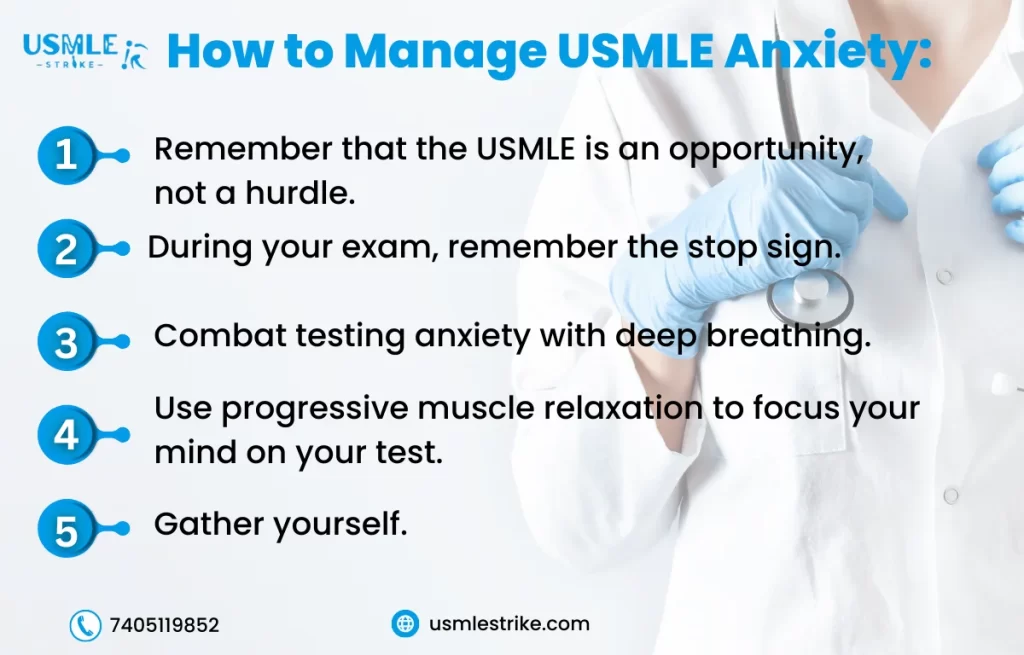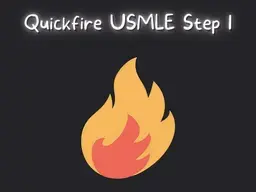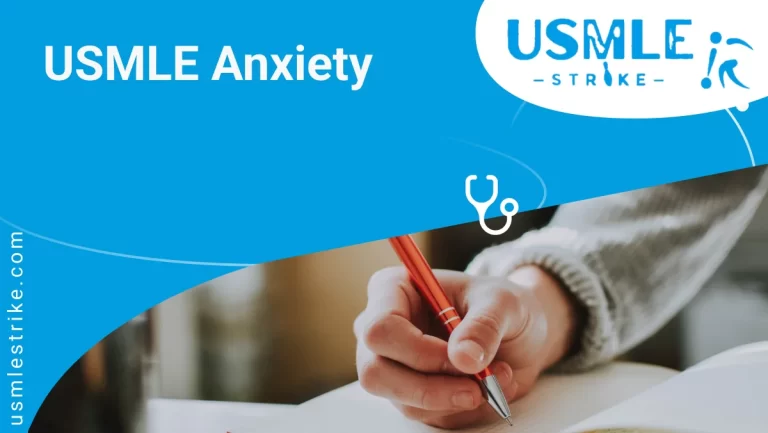Have you ever experienced the feeling of walking into an exam room to write a test you have been studying hard for only to be overwhelmed by anxiety and stress? This is a common phenomenon known as test anxiety, and it can negatively affect your grades and test scores, even if you have prepared adequately.
By learning strategies to manage USMLE anxiety before and during exams, such as relaxation techniques, mindfulness, and positive self-talk, you can help minimize the impact of anxiety and achieve your true potential.

What is USMLE Anxiety?
USMLE anxiety refers to the feelings of nervousness, fear, or apprehension experienced by medical students or graduates preparing to take the United States Medical Licensing Examination (USMLE). It can be caused by various factors such as the importance of the exam, high stakes involved, and the difficulty of the content, among others. Managing USMLE test anxiety is crucial for optimal exam performance.
How to Overcome Test Anxiety during USMLE?
The USMLE (United States Medical Licensing Examination) is a challenging test that can cause significant anxiety for medical students and professionals. However, there are several strategies that can help individuals overcome USMLE anxiety and perform well on the exam.

Ten Ways to Overcome USMLE Step 1 Anxiety
- Start Studying Early: One of the most effective ways to overcome test anxiety is to start studying for the USMLE early. This can help you avoid cramming and give you enough time to thoroughly review the material. It can also help you feel more confident and in control of the exam.
- Develop a Study Plan: Creating a study plan can help you stay organized and ensure that you cover all the material before the exam. A study plan should include a daily schedule that includes time for studying, breaks, and relaxation.
- Practice Mindfulness and Relaxation Techniques: Mindfulness and relaxation techniques such as deep breathing, meditation, and progressive muscle relaxation can help reduce anxiety and promote relaxation. These techniques can be especially helpful to overcome USMLE anxiety at the time of exam.
- Get Enough Sleep: Lack of sleep can contribute to test anxiety and reduce cognitive function. It is vital to get enough sleep by maintaining good sleep habits throughout the preparation period.
- Eat a Balanced Diet: A healthy, balanced diet can help reduce stress and anxiety and promote cognitive function. It is important to eat a balanced diet throughout the preparation period and to avoid caffeine and other stimulants that can contribute to anxiety.
- Exercise Regularly: Regular exercise can help reduce stress and anxiety and promote overall health and wellbeing. It is important to include exercise in your study plan and to maintain a regular exercise routine throughout the preparation period.
- Stay Positive and Avoid Negative Self-Talk: Negative self-talk can contribute to anxiety and reduce confidence. Stay positive and focus mainly on your strengths and abilities. Affirmations and positive self-talk can be helpful in reducing anxiety and promoting a positive mindset.
- Seek Support: To overcome USMLE anxiety, you can seek support from friends, family, or a mental health professional during the preparation period. Support can help reduce stress and anxiety and promote overall well-being.
- Take Practice Exams: Practice exams can help you get a feel for the test format and reduce anxiety by increasing your familiarity with the exam. Taking practice exams can also help you identify areas where you need more review.
- Plan for Test Day: Planning ahead for test day can help reduce USMLE Step 1 anxiety and ensure that you are prepared for the exam. This can include packing a bag with necessary items such as ID, writing materials, plan for transportation and parking and arrive at the testing centre early. Also, manage the time efficiently while writing the exam.
- Nurturing Your Mind and Eyes: Show compassion to your eyes and brain during the USMLE exam preparation. With the test requiring hours of focused screen time and mental gymnastics, it’s a challenging process. Instead of cramming intensely in the final days, opt for light review of trivia flashcards. Limit screen exposure before the exam day to ensure your eyes are rested. A refreshed mind and body contribute significantly to managing anxiety levels on test day, enhancing your overall well-being.
Conclusion
Thus, overcoming test anxiety during the USMLE can be a challenging but achievable goal. By implementing various strategies, such as starting early, developing a study plan, practicing mindfulness and relaxation techniques, getting enough sleep and exercise, staying positive, seeking support, taking practice exams, and planning for test day, individuals can reduce their USMLE anxiety and perform well on the exam.





